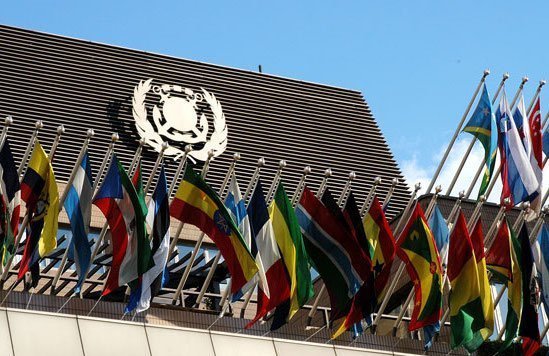Aoife O’Leary, the CEO and founder of Opportunity Green, writes for Splash today on one of the key takeaways from last week’s environmental discussions in London.
The International Maritime Organization has been debating how to reduce emissions from international shipping for decades now. But inlast week’s discussions at the 81st Marine Environment Protection Committee (MEPC 81) we had a real breakthrough: an “Illustration of a draft possible outline of the ‘IMO Net-Zero Framework’ – Possible amendments to MARPOL Annex VI”. While that might sound incredibly dry, stay with me while I explain five reasons why it is crucial in the fight against climate change.
We now have a possible outline of how measures might sit in MARPOL
This is the first time we have an agreement on how the MARPOL Convention (the International Convention for the Prevention of Pollution from Ships) could be amended to include a fuel standard and a levy on international shipping. This is the confirmation that the MARPOL Convention is an adaptive and flexible convention which can be quickly deployed to support the shipping sector in its transition to zero emissions.
The legal debate is over
There was debate for a number of years on whether the MARPOL Convention could be the legal instrument for economic measures that were designed to reduce the emissions of shipping. Back in 2018, I wrote an extensive paper for the Sabin Center on Climate Change Law on the powers that the IMO had to adopt climate measures and found that the MARPOL Convention would be the best instrument, as it addresses countries (not ships), can be quickly amended and can be adapted to include whatever measures are necessary to reduce marine pollution. With this latest committee meeting, that legal analysis has been confirmed to also be the main view of IMO members.
MARPOL can be amended quickly in line with the urgency of climate change
The fact that this debate is over and we are quickly moving to fill out text under each of the outline headings is an excellent outcome from the last set of meetings. Importantly, once the text is ready, MARPOL has a “accept unless rejected” or “tacit” amendment procedure which allows for a very speedy adoption, unless one third of the parties, making up 50% of the gross tonnage of the world’s merchant fleet object. Delegates must make sure to use this procedure.
MARPOL is already the law in many countries around the world
Many countries have already adopted the MARPOL Convention into their national legislation so that any amendments to the Convention (as are being discussed now) can be adopted without needing to go through a full national parliamentary process. And this is not to celebrate the avoidance of parliamentary scrutiny but it does mean that any legislation can come into force quickly, and crucially, start to be implemented immediately.
No More Favourable Treatment
“No More Favourable Treatment” is a term of art developed in the MARPOL Convention which essentially means that, once a country has signed up to the MARPOL Convention, it must implement all the requirements under the Convention on all ships that stop in its ports, not just on the ships that are flying the flag of countries that have also signed up to MARPOL. This also means that the agreement can be implemented nationally through existing port inspection regimes and will not require a new enforcement architecture to be developed (though one or two extra processes might need to be added), further ensuring speedy adoption. This is an effective stop against any market distortion for all countries that sign up to the MARPOL Convention – all ships calling at their ports will have to comply.
Of course all of this does not mean that a levy and fuel standard is a forgone conclusion, there is still much work to be done to reach an ambitious consensus which would address the climate impact of shipping. But in addition to this legal breakthrough, we did see growing consensus in the room, especially from Caribbean States joining Pacific Island States to support a levy of at least $150 per ton of greenhouse gas emissions on a full lifecycle basis. The next meeting of the committee will be in the autumn, and hopefully we’ll see countries come forward with ambitious proposals to fill out the legal outline we now have, sitting firmly in the right place: the MARPOL Convention.






